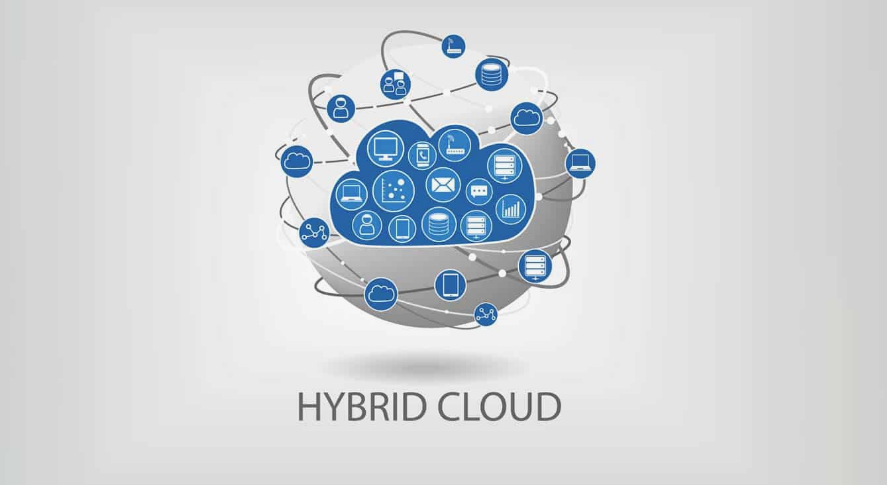Do you know what unseen data is? Maybe you think that data which we cannot see is unseen!!
Funny isn’t it? However, unseen data refers to information a machine learning model has not encountered during training.
Today, Businesses and industries rely on Artificial Intelligence (AI) to make data-driven decisions. However, one of the biggest challenges AI models face is handling unseen data.
This is where hybrid AI models step in. These models combine the best of multiple approaches such as supervised and unsupervised learning, making them more adaptable and resilient.
Appreciating Hybrid AI one of the reports by Precedence Research states:
The global hybrid intelligence market is projected to grow at a compound annual growth rate (CAGR) of 28.2% from 2022 to 2030.
To prove these numbers right, Let us dive into why hybrid AI models and how to outperform traditional ones, especially when dealing with new, unseen data. And we’ll also touch on how hybrid cloud solutions enhance this capability.
Hybrid Cloud and AI Models: A Powerful Combination
Hybrid cloud solutions combine the flexibility of the public cloud with the security of the private cloud. When applied to AI models, this approach provides unmatched scalability and resilience. The hybrid cloud framework allows AI systems to access vast amounts of data from multiple sources, giving the model diverse perspectives.
By using the combined strength of both private and public clouds, businesses can process and analyze data faster and more efficiently.
- Better Data Management: Hybrid cloud offers seamless data storage, processing, and retrieval across multiple platforms. This allows AI models to train on different types of data, including data that may not be accessible from a single cloud environment.
- Scalable Resources: The hybrid cloud can adjust resources as needed. This flexibility is key for AI models to scale according to the complexity and volume of unseen data.
The resilience of hybrid AI models comes from their ability to leverage this hybrid cloud infrastructure, providing a robust framework for data processing, learning, and decision-making.
Flexibility of Hybrid AI Models
Hybrid AI models are designed to be flexible. They can seamlessly integrate different learning techniques and adjust to changes in the data they process. This flexibility makes them more resilient, especially when faced with unseen data.
Unlike traditional AI models that are built to handle specific types of data or tasks, hybrid AI models can adapt quickly to new conditions.
- Combining the Best of Both Worlds: Hybrid AI systems blend the strengths of both supervised and unsupervised learning techniques. Supervised learning helps the model recognize patterns based on labeled data, while unsupervised learning allows it to find hidden insights in unlabeled data. This combination makes hybrid models more versatile.
- Continuous Learning: Hybrid models are designed to learn from incoming data continuously. This enables them to handle unseen data better as they evolve and improve over time.
The adaptability of hybrid AI models in the face of new data ensures they remain effective as circumstances change, making them highly resilient.
Hybrid AI Models Handle Unseen Data
Unseen data is a constant challenge for AI systems. Traditional models can struggle with this data, especially if the data deviates from patterns they have previously encountered. Hybrid AI models, on the other hand, excel in this area because they use multiple techniques to understand and process diverse data.
- Enhanced Generalization: Hybrid models generalize better to new situations. This is because they are trained on diverse data sources, helping them to recognize patterns that may not have been present in their training datasets.
- Robust Error Handling: With their ability to combine various learning techniques, hybrid AI models are better at identifying when something is out of the ordinary, allowing them to make more accurate predictions even with unfamiliar data.
This ability to process and understand unseen data makes hybrid AI models indispensable in industries where data is constantly evolving.
The Role of Hybrid Cloud Solutions in Data Resilience
Hybrid cloud solutions provide the infrastructure needed for AI models to thrive in the face of unseen data. With data spread across multiple cloud platforms, these models have access to more diverse datasets, which can improve their learning and performance.
- Increased Data Diversity: Hybrid cloud solutions connect multiple data sources, ensuring AI models have access to a variety of data types. This helps the models recognize new patterns and adapt to unforeseen data inputs.
- Improved Performance and Speed: The ability to harness both public and private cloud resources ensures AI models can process large volumes of data faster. This speed is essential for making real-time decisions when confronted with new data.
By using hybrid cloud systems, AI models can maintain the performance and accuracy needed to handle any data they encounter, seen or unseen.
Hybrid AI Models Are Here to Stay
The advantages of hybrid AI models, especially in combination with hybrid cloud solutions, cannot be overstated. As data becomes increasingly diverse and unpredictable, businesses will rely more on hybrid AI models to make sense of the data and generate actionable insights.
The adaptability of hybrid AI models ensures they are future-proof. Their ability to integrate various data sources and learning techniques makes them highly resilient, even in unpredictable situations. Furthermore, the scalability offered by hybrid cloud solutions allows businesses to stay agile as they navigate through the complex data landscape.
Conclusion
Hybrid AI models provide a resilient solution to the challenge of handling unseen data. Their flexibility, combined with the power of hybrid cloud solutions, makes them ideal for processing diverse and unpredictable datasets.
Businesses that embrace this combination will find themselves better prepared to adapt to changing conditions and make smarter decisions faster. As data continues to grow and evolve, hybrid AI models will play a crucial role in driving innovation and success.
By leveraging both hybrid cloud infrastructure and hybrid AI models, businesses are well-equipped to tackle the future of AI head-on.



